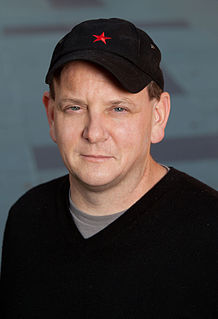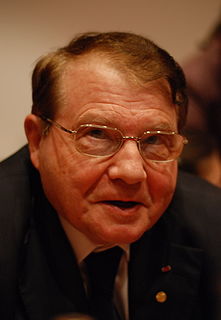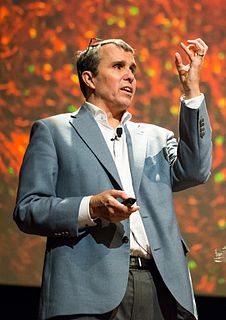A Quote by Michael Behe
We can look high or we can look low in books or in journals, but the result is the same. The scientific literature has no answers to the question of the origin of the immune system.
Quote Topics
Related Quotes
I look upon cancer in the same way that I look upon heart disease, arthritis, high blood pressure, or even obesity, for that matter, in that by dramatically strengthening the body's immune system through diet, nutritional supplements, and exercise, the body can rid itself of the cancer, just as it does in other degenerative diseases. Consequently, I wouldn't have chemotherapy and radiation because I'm not interested in therapies that cripple the immune system, and, in my opinion, virtually ensure failure for the majority of cancer patients.
The battle over the validity of evolution has been publicly posed as a scientific one. However, you will find little sign of it in scientific journals, where such quarrels as exist are over details, not the basic concept... Evolution has proved so useful as a paradigm for the origin and structure of life that it constitutes the foundation of the sciences of biology and medicine.
Whenever the immune system deals successfully with an infection, it emerges from the experience stronger and better able to confront similar threats in the future. Our immune system develops in combat. If, at the first sign of infection, you always jump in with antibiotics, you do not give the immune system a chance to grow stronger.
We liked the idea that it was a low-tech future. But everything always repeats the past. If you look today and look at something in the middle east where you got people getting beheaded it's like the crusades with Twitter. It's crazy, human nature does the same thing. In a way, even though you're in the future people wanted order so this sort of system rose up.
Books should confuse. Literature abhors the typical. Literature flows to the particular, the mundane, the greasiness of paper, the taste of warm beer, the smell of onion or quince. Auden has a line: "Ports have names they call the sea." Just so will literature describe life familiarly, regionally, in terms life is accustomed to use -- high or low matters not. Literature cannot by this impulse betray the grandeur of its subject -- there is only one subject: What it feels like to be alive. Nothing is irrelevant. Nothing is typical.
We are the environment. The world is literally one biological process. The trees are our lungs. Look at the Amazon River system next to a human cardiovascular system, look at corals or trees and look at our lungs, you literally cannot tell the difference. They’re the same. So when we destroy our environment, we’re effectively destroying ourselves.
When you vaccinate someone, or when you get infected, the microbe is presenting itself to the immune system in a way that the immune system recognizes the important elements of the microbe and makes an immune response, both an antibody response and a cellular response, to ultimately contain the microbe.




































